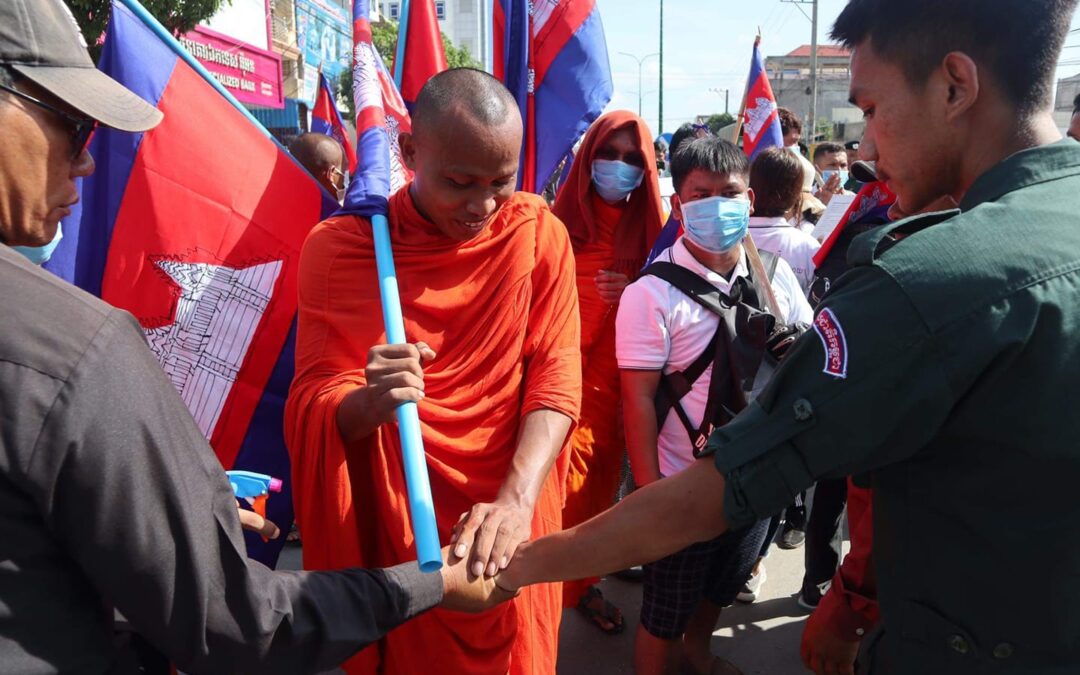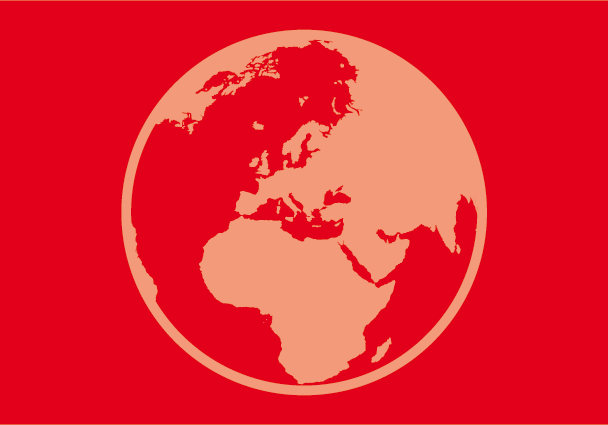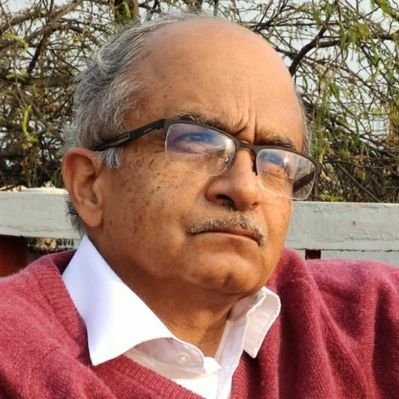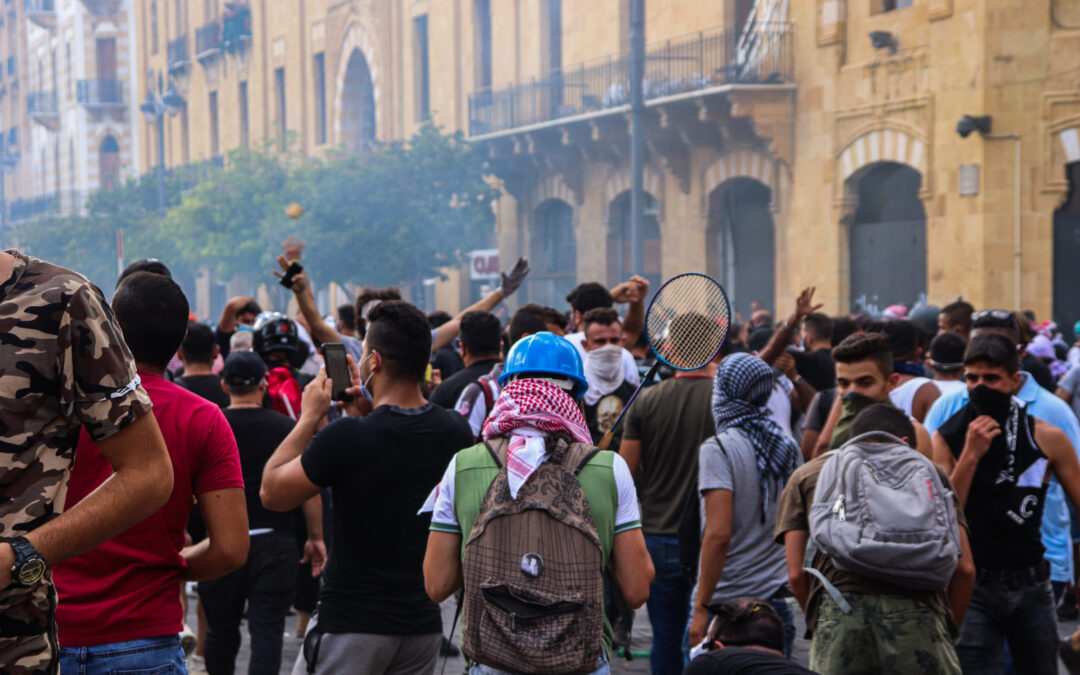
Sep 15, 2020 | Advocacy, Non-legal submissions
At the UN Human Rights Council in Geneva, the ICJ has urged States to ensure human rights and avoid discriminatory impacts, and for businesses to respect their human rights responsibilities, in responding to the COVID-19 pandemic.
The oral statement, delivered in a general debate on the update of the High Commissioner for Human Rights, read as follows:
“In our latest report, Living Like People Who Die Slowly: The Need for Right to Health Compliant COVID-19 Responses,[1] the International Commission of Jurists (ICJ) calls on States to ensure that their individual and collective responses to the COVID-19 pandemic comply with international human rights law, including the right to health.
Any abuse of pandemic measures to repress human rights defenders, dissenting voices, or civil society more generally, is unacceptable. Respect for freedom of expression, including the right to information, is essential to effectively addressing the pandemic.
The particularly acute impact of COVID-19 on already-marginalized people heightens the importance of equal access to health facilities, goods and services. The report documents disproportionate impacts on non-citizens, older persons, women and girls, LGBT persons, persons deprived of their liberty, persons with disabilities, sex workers and healthcare workers.
Businesses, and particularly private actors in the healthcare sector must meet their responsibility to respect human rights. This will be crucial in the development, production and distribution of any COVID-19 vaccine.
Madame President, the ICJ emphasizes the continuing importance and applicability of the 1984 Siracusa Principles on the Limitation and Derogation Provisions in the International Covenant on Civil and Political Rights,[2] and the recognition in the WHO International Health Regulations that implementing measures must be fully consistent with human rights.”
[1] https://www.icj.org/icj-new-global-report-shows-that-the-right-to-health-must-be-central-to-state-responses-to-covid-19/ (1 September 2020).
[2] https://www.icj.org/siracusa-principles-on-the-limitation-and-derogation-provisions-in-the-international-covenant-on-civil-and-political-rights/ and UN Doc E/CN.4/1985/4, Annex.
The full range of materials produced by the ICJ concerning the COVID-19 pandemic can be accessed at: https://www.icj.org/human-rights-in-the-time-of-covid-19-front-and-centre/

Sep 11, 2020 | News
Today, the ICJ condemned an ongoing and heightened crackdown on civil society activists and human rights defenders in Cambodia, and called on the Royal Government of Cambodia (“RGC”) to cease arbitrary arrest and other harassment of individuals for merely exercising their human rights and fundamental freedoms.
From end-July to early this week, at least eleven activists have been arrested and detained on spurious charges in an invigorated attempt by authorities to silence critical dissent in the country.
“The Cambodian authorities in recent days have ratcheted up their abuse of domestic laws to target human rights defenders and perceived critics of the government. We fear that without a robust international response, the situation will only deteriorate further,” said Kingsley Abbott, ICJ Senior Legal Adviser.
“They are now targeting youth in particular, in an apparent bid to curtail their use of social media to amplify dissatisfaction with the ruling regime. Instead of attacking them, the government needs to stop and listen to their people,” he added.
Several arrests have been linked with the detention of prominent union leader, Rong Chhun. On 31 July, Rong Chhun, President of the Cambodian Confederation of Unions, was arrested at his home in suspected retaliation for comments he had made alleging loss of community land in relation to demarcation of the Cambodian-Vietnamese border. He was thereafter charged with “incitement to commit a felony or disturb social security,” under articles 494 and 495 of the Criminal Code. He is currently in detention in Phnom Penh’s Correctional Centre 1.
On 13 August, Hun Vannak and Chhouen Daravy, founding members of the Khmer Thavrak youth activist group, were arrested in relation to a rally they had held outside Phnom Penh Municipal Court in support of Rong Chhun. Daravy was reportedly slapped, then grabbed and hit before being pushed into a vehicle during her arrest. Security officials also reportedly beat and kicked at people in the rally to disperse the crowd, injuring about ten individuals.
On 6 September, Buddhist monk Venerable Koet Saray and Mean Prommony, Vice-president of the Khmer Student Intelligent League Association, were arrested in apparent connection with a rally they had been organizing to call for Rong Chhun’s release. On 7 September, Khmer Thavrak activists Tha Lavy and Eng Malai were arrested. Tha Lavy was arrested on arriving at a protest at Freedom Park. Eng Malai was arrested the day she had left the UN Office of the High Commissioner for Human Rights’ Cambodia office, where she had raised her security concerns.
Simultaneous arrests of environmental rights activists and a rapper evidence a wider crackdown beyond the case of Rong Chhun. On 4 September, three members of environmental rights group Mother Nature Cambodia, Thun Ratha, Long Kunthea and Phuong Keorasmey were arrested. They were thereafter charged with incitement under articles 494 and 495 of the Criminal Code. On the same day, rapper Kea Sokun was arrested in Siem Reap province and similarly charged with incitement, in apparent connection with a popular song he had released on YouTube, concerning land at the Cambodian-Vietnamese border.
On 7 September, the Ministry of Interior issued a statement denouncing Khmer Thavrak and Mother Nature Cambodia as unauthorized organizations, calling on the responsible authorities to prosecute them.
The ICJ is concerned that the groups are being targeted for allegedly operating without being registered in accordance with the Law on Associations and Non-Governmental Organizations. The requirements under this law are non-compliant with international law and standards that protect human rights and fundamental freedoms, as the ICJ has previously pointed out. The law impermissibly restricts the ability of civil society members to exercise their rights to freedom of association and expression.
The ICJ recalls the responsibility of Cambodia, as expressly stated in the UN Human Rights Defenders Declaration, to “take all necessary measures to ensure the protection by the competent authorities of everyone, individually and in association with others, against any violence, threats, retaliation, de facto or de jure adverse discrimination, pressure or any other arbitrary action as a consequence of his or her legitimate exercise of the rights referred to in the present Declaration.” These rights include, among others, freedoms of expression, opinion, peaceful assembly, association and political participation.
“Far from protecting these rights, the government has been systematically violating them,” said Abbott.
“The recent arrests signal yet another sign of further regression that needs to be called out by the international community, including by partners, missions, UN agencies and financial institutions.”
On 7 September, the UN Special Rapporteur on Cambodia expressed concerns about the recent arrests and also highlighted that she “has been closely following reports that seven different CSOs have been searched or informed of pending visits by the authorities since last week.” Similarly, over the past few days, the UN Special Rapporteur on Human Rights Defenders has expressed concern about the crackdown, stating “peaceful protest is not a crime”.
Contact
Kingsley Abbott, Senior Legal Adviser, ICJ Global Redress & Accountability Initiative e: kingsley.abbott(a)icj.org
See also
ICJ and 31 organizations jointly urge Governments to call for respect of human rights in Cambodia, 22 July 2020
Cambodia: State of Emergency bill violates the rule of law’, 8 April 2020
Misuse of law will do long-term damage to Cambodia, 26 July 2018
‘Cambodia: deteriorating situation for human rights and rule of law (UN statement), 27 June 2018
‘Cambodia: the ICJ condemns Senate’s approval of draft Law on Associations and NGOs, 24 July 2015

Sep 1, 2020 | News, Publications, Reports, Thematic reports
In a new report published today, the ICJ called on all States to ensure that their responses to the public health emergency brought on by the COVID-19 comply with the international human rights law and the right to health.
The report emphasized the particularly acute and discriminatory impact of the pandemic on already marginalized people and the need for access to health facilities, goods and services necessary to combat COVID-19 without discrimination.
The report Living Like People Who Die Slowly: The Need for Right to Health Compliant COVID-19 Responses documents the adverse human rights effects wrought by the COVID-19 pandemic.
The title comes from the words of Mama Yuli, an Indonesian transwoman, who has said that the pandemic left many elderly transwomen feeling like “they live like people who die slowly”.
The report emphasizes the need for a human rights and rule of law-based approach to the pandemic, with States working cooperatively to address a health crisis that by its nature knows no national boundaries.
“The COVID-19 pandemic is public health crisis that presents immeasurable threats to human rights and the rule of law globally, said Ian Seiderman, the ICJ’s Legal and Policy Director.
“But what is crucial is that States responses themselves not only respond immediately and effectively to COVID-19 as a public health emergency, but also as a human rights crisis”, he added.
Building on the ICJ’s earlier responses to COVID-19, the report details the disproportionate impact of COVID-19 on non-citizens, older persons, women and girls, LGBT persons, persons deprived of their liberty, persons with disabilities, sex workers and healthcare workers.
The report also emphasizes the need for the provision of health information by State authorities in the context of COVID-19 and scrutinizes measures taken by States which have often curbed the rights to freedom of expression, information and privacy.
For example, though “contracting tracing” measures may be effective they must also be human rights compliant and information gathered through such measures should not be used inappropriately or as an instrument of repression of individuals and human defenders.
Acknowledging the interconnectedness of all human rights, the report emphasizes the need for States to ensure provision and protection of access to the “social determinants of health” such as housing, food and water, themselves also internationally protected rights.
The report provides recommendations to States that may assist in ensuring right to health and human rights compliant responses to COVID-19.
The ICJ called on States to respect the various guidance offered by UN human rights treaty bodies and independent experts on how best to comply with their human rights obligations while responding to the pandemic.
The human rights system provides important guidance to States that was not available, for example, during the 1918 influenza pandemic, which ultimately resulted in an estimated 50 million deaths.
“States must heed these calls for a human rights and rule of law-based response to COVID-19, as failure to do so will certainly result in death and human suffering that can still be avoided,” said Seiderman.
The report also raises the importance of compliance by businesses, including particularly private actors in the healthcare sector, with their responsibility to respect human rights, including the right to health.
This will be critical, for example, in ensuring the success of combined efforts of States and private companies in the development and ultimate distribution of a COVID-19 vaccine.
Contact
Timothy Fish Hodgson, ICJ Legal Adviser on Economic, Social and Cultural Rights, t: +27828719905 e: timothy.hodgson@icj.org
Download
Universal-Global Health COVID-19 Exec Sum-Publications-Reports-Thematic Reports-2020-ENG (Executive Summary, in PDF)
Universal-Global Health COVID-19-Publications-Reports-Thematic Reports-2020-ENG (Full report, in PDF)
Myanmar-ICJ-Right-to-Health-Report-2021-BUR.pdf (Full report in Burmese)
Read also
Human Rights in the time of COVID-19: Front and Centre – ICJ news, articles, op-eds, legal blogs, videos
COVID-19 Symposium: COVID-19 Responses and State Obligations Concerning the Right to Health (Part 1)
COVID-19 Symposium: COVID-19 Responses and State Obligations Concerning the Right to Health (Part 2)
Watch

Sep 1, 2020 | News
The ICJ today expressed its concern regarding the 31 August 2020 and 14 August 2020 decisions of the Indian Supreme Court to convict prominent human rights lawyer Prashant Bhushan for criminal contempt of court, on the basis of two twitter posts in which the lawyer criticized the performance of the Indian judiciary.
While the Court only imposed a symbolic fine of one rupee, rather than imprisonment, the ICJ considers that the conviction appears to be inconsistent with international standards on freedom of expression and the role of lawyers.
The ICJ stressed that the ruling risks having a chilling effect on the exercise of protected freedom of expression in India and urged a review of the laws and standards on criminal contempt as applied by the Indian courts.
The two tweets published by Prashant Bhushan referred to the Chief Justice of India riding an expensive motorbike belonging to a BJP leader “when he keeps the SC in Lockdown mode denying citizens their fundamental right to access justice” and asserted that the Supreme Court and the last four Chief Justices of India had contributed to how, in his view, “democracy has been destroyed in India even without a formal Emergency”
The Court in its 31 August judgment held that the tweets were a serious attempt to “denigrate the reputation of the institution of administration of justice” which, it said, is “capable of shaking the very edifice of the judicial administration and also shaking the faith of common man in the administration of justice.”
The Court considered that its ruling was consistent with freedom of speech and expression under Article 19 of the Indian Constitution, saying that it will have to balance its exercise of power to punish for contempt for itself (Article 129) with freedom of speech and expression.
The ICJ is concerned, however, that the conviction appears inconsistent with international law on freedom of expression as guaranteed by the International Covenant on Civil and Political Rights (Article 19, ICCPR) to which India is a party.
While some restrictions of freedom of expression are permitted by international standards, a particularly wide scope must be preserved for debate and discussion about such matters as the role of the judiciary, access to justice, and democracy, by members of the public, including through public commentary on the courts.
Any restrictions must be strictly necessary and proportionate to meet a legitimate purpose, such as protecting public order or the rights and reputations of others.
“There is a general concern that the protection of freedom of expression is rapidly eroding in India,” said Ian Seiderman, ICJ Legal and Policy Director.
“We have seen this recently around the COVID 19 crisis in relation to the imprisonment of human rights defenders, on draconian charges of sedition, rioting and unlawful assembly for protesting against the Citizenship (Amendment) Act.”
“While the Indian Supreme Court has over the years generally been an institution that has served to advance human rights in India and globally, we fear it now may be perceived as silencing criticism and freedom of expression by invoking outdated criminal contempt laws,” Seiderman added.
The ICJ joins the 1800 Indian lawyers in calling for the Supreme Court “to review the standards of criminal contempt”, emphasizing that the law is overbroad and should be aligned with international law and standards on the limited scope for restrictions on freedom of expression and criminal contempt.
“Prashant Bhushan is a lawyer and lawyers being part of the legal system have a ring-side view and understanding of the state of the court. Convicting a leading lawyer for contempt for expressing his views in this manner may have a chilling effect on lawyers, in particular considering his involvement in many public interest litigation cases,” said Mandira Sharma, ICJ South Asia Senior Legal Adviser.
Contact
Ian Seiderman – ICJ Legal and Policy Director; e: ian.seiderman(a)icj.org , t: +41 22 979 38 00
Matt Pollard – ICJ Senior Legal Adviser, Director, ICJ Centre for the Independence of Judges and Lawyers; e: matt.pollard(a)icj.org, t: +41 79 246 54 75
Download
India-Criminal-Contempt-of-Court-Press-Release-2020-ENG (PDF, with additional background information)

Aug 11, 2020 | News
The ICJ is concerned at reports that on 8 and 9 August, Lebanese security forces, including Internal Security Force (ISF) units, parliamentary police and the army, employed excessive and unlawful force against hundreds of protestors, resulting in the injury of more than 700 people and dozens of hospitalizations.
The ICJ called on the Lebanese authorities to protect the rights to freedom of peaceful assembly and expression and refrain from using excessive and unlawful force against protestors demanding justice for the 4 August explosions in Beirut’s port district.
The explosions devastated the city’s infrastructure and resulted in the death, injury and internal displacement of large numbers of its inhabitants.
The ICJ stressed that credible allegations of excessive and unlawful use of force in the context of the protests must be promptly, thoroughly and impartially investigated and those responsible must be held to account.
According to information available to the ICJ, at least 14 journalists and media personnel covering the protests were among the wounded.
According to reports, a policeman also died after falling down an elevator shaft while being chased by protesters. While there were reports that some demonstrators threw rocks and firecrackers at security forces, reports also indicate that the security forces’ response was indiscriminate and, in some instances, excessive.
“Many protestors in Lebanon continue to be met with excessive and unlawful force by security agencies, telling the same grim story of how the Lebanese authorities habitually respond to unwelcome political expression and the grievances of the Lebanese public,” said Kate Vigneswaran, the ICJ’s Middle East and North Africa Programme Senior Legal Adviser.
“The people of Beirut have the right to peacefully express their outrage, at alleged official malfeasance that apparently contributed to last week’s tragic devastation, and to expect security forces will comply with the law,” she added.
Information from ICJ interviews with three protestors, and substantiated by reports by multiple media and news agencies, reveal that security forces fired large quantities of tear gas, in addition to rubber bullets, at protestors in several locations in central Beirut, including a gathering of at least 10,000 people including children at Martyr’s Square and those who occupied Parliamentary and ministerial buildings.
Reports also indicate that live ammunition was fired by security forces during the protests, namely birdshot.
A protestor interviewed by the ICJ stated that he was shot in the arm by a rubber bullet and in the leg by a pellet gun, the latter lodging shrapnel into various parts of his body.
Social media reports reveal that some protestors were shot in the face and eyes with rubber bullets. The ISF has denied using rubber bullets.
According to another protestor, government loyalists attacked her in the presence of ISF officers and the army as she filmed scenes outside the American University Hospital, threatening her with violence and by breaking her mobile phone.
Similar reports of security forces indiscriminately beating and harassing protesters have surfaced on social media platforms.
International law, governing the use of force by law enforcement officers, which is binding on Lebanon, mandates that force is only permissible as a last resort for the sole purpose of protecting life or preventing serious injury from an imminent threat, if strictly necessary and only to the extent necessary for the performance of their duty.
All use of force must be discriminate and proportionate to the threat of harm.
The ICJ has called for a prompt, transparent, independent and impartial investigation into the 4 August explosions by a special, independent mechanism, given the documented lack of independence in certain parts of the Lebanese judiciary, which was echoed by other human rights organizations and members of the international community.
Lebanon’s President dismissed the call as “a waste of time” and instead urged the Lebanese judiciary to act swiftly to probe the incident.
Prime Minister Hassan Diab announced his cabinet’s resignation on Monday following widespread calls for the political establishment to resign from their posts following the explosion. Nine members of Parliament, two government Ministers and the Lebanese Ambassador to Jordan had also resigned from their posts over the weekend.
“The explosions were devastating for the people of Beirut, resulting not only in the loss of life and massive injuries, but severe curtailment of their rights to housing and health and their other socio-economic rights,” said Vigneswaran.
“Based on the response of the Lebanese authorities thus far, and given their poor track record in pursuing and realizing accountability, it is clear that there is an urgent need for a proper accountability mechanism to investigate the explosions and respond to victims’ demands and calls for justice. A change in government is not enough,” she added.
Contact
Kate Vigneswaran, Senior Legal Adviser, ICJ Middle East and North Africa Programme, t: +31-62-489-4664; e: kate.vigneswaran(a)icj.org
Download
Full story with additional information: Lebanon-Protests-News-Press releases-2020-ENG
Arabic version: Lebanon-Protests-News-Press releases-2020-ARA
Photo Credit: Aya Nehme









